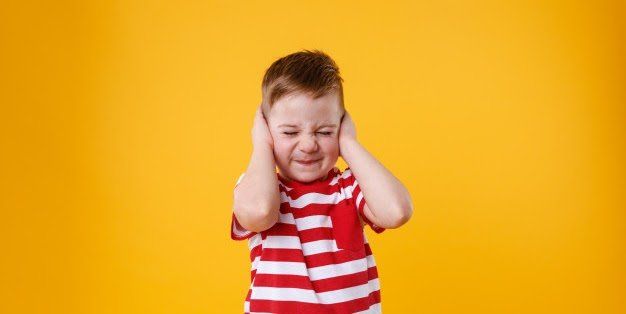Managing Sensory Overload
Managing Sensory Overload

Sensory overload is a common condition associated with Autism Spectrum Disorder. It occurs when one or more of the senses is stimulated beyond one’s present ability to cope. Many individuals with autism are sensitive to their surroundings to begin with; on top of that, they may have a hard time filtering out specific stimuli that others may not even notice, such as a ticking clock or general crowd noise.
Hypersensitivity may lead to “stimming”—behaviors such as hand-flapping, repetition of words or phrases, rocking back and forth, or even harmful behaviors such as ear-clapping, or self-scratching. These behaviors can be soothing, distracting, or both, and they are the individual’s way of coping with the stimuli. Coping behaviors may also include covering eyes or ears, not wanting to be touched, or irritability. More extreme symptoms could include outbursts of anger, anxiety, rapid breathing, profuse sweating, restlessness, or muscle rigidity.
Sensory overload can be triggered by a wide variety of stimuli. Some of the most common include:
● Sight - bright lights or the flickering of a fluorescent bulb
● Sound - air conditioners, lawnmowers, washing machines, etc. As stated above, sometimes it may be something as quiet as the ticking of a clock
● Touch - offending textures may be scratchy, cold, slimy, and more
● Smell - perfumes, cleaning products, and even foods with particular strong aroma may contribute to sensory overload
Tips for Managing Sensory Overload
Learn to recognize the signs of sensory overload in your child so you will be able to intervene as quickly as possible when they happen.
● Have a plan of action. If you know your child has experienced sensory overload in the past, think ahead to the future and consider how you will step in when it happens again.
● Some children find comfort in a weighted blanket, favorite stuffy, or pillow. Keep something like this handy if sensory overload happens often.
● Gently encourage verbal communication where appropriate. The more accurately you can determine the source of the overload, the better you can intervene. You might ask, “What will help you feel calm?”
● Keep in mind that behavior is communication. Your child may not be able to articulate what is overstimulating them or what they need to feel calm. In this case, you may need to observe their behavior carefully over time to help determine the answers to these questions.
You are not alone in this process. An ABA therapist is qualified to help ascertain the specifics of your child’s sensory issues. Not only that, but therapy can be personalized to a child’s needs and, over time, help your child cope with sensory overload in a healthy way.
Contact Positive Reinforcement today for in home ABA therapy, servicing North Virginia, West Virginia. Now providing in home ABA Therapy Services in Richmond Virginia.










